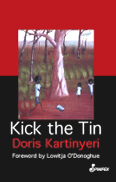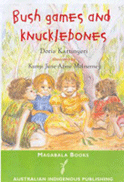Doris Kartinyeri – May 22 2016
National Sorry Day – May 26 2016
National Sorry Day is held on May 26 each year to acknowledge and recognise members of the Stolen Generations.
 Doris is an Ngarrindjeri woman whose mother died of complications four weeks after giving birth. Doris was taken from the hospital without her father’s knowledge or permission and placed in the Colebrook Home for Aboriginal Children in Adelaide where she spent the next 14 years. Afterwards she was sent to white homes as a domestic servant and struggled through bi-polar depression. Her memoir outlines her struggle to find her identity in the following years and is used widely in schools and universities. Doris lives in a small house in Adelaide with her 15-year-old dog, Sharah. When she’s not speaking on the Stolen Generations to groups and schools, or involved with the Enfield Outreach program, Doris likes to crochet or work in her garden. Visits from her three children and 13 grandchildren keep her on her toes.
Doris is an Ngarrindjeri woman whose mother died of complications four weeks after giving birth. Doris was taken from the hospital without her father’s knowledge or permission and placed in the Colebrook Home for Aboriginal Children in Adelaide where she spent the next 14 years. Afterwards she was sent to white homes as a domestic servant and struggled through bi-polar depression. Her memoir outlines her struggle to find her identity in the following years and is used widely in schools and universities. Doris lives in a small house in Adelaide with her 15-year-old dog, Sharah. When she’s not speaking on the Stolen Generations to groups and schools, or involved with the Enfield Outreach program, Doris likes to crochet or work in her garden. Visits from her three children and 13 grandchildren keep her on her toes.
 Bush Games and Knucklebones, Illustrated by Kunyi June-Anne McInerney
Bush Games and Knucklebones, Illustrated by Kunyi June-Anne McInerney
Magabala Books, 2003; ISBN 9781875641819
Children’s picture book
In this memoir, Doris compares her life to the game ‘Kick the Tin’ which was played at the home, where children had to run and hide after a tin was kicked. Placed in white homes as a virtual slave, Doris struggled through relationships and suffered with anxiety and mental illness. This is a life that has, indeed, been kicked around. Kick the Tin is the compelling and sometimes witty story of a courageous journey, a journey into the soul of an individual to find meaning and substance after the loss of everything the rest of us take for granted.
 Bush Games and Knucklebones – Illustrated by Kunyi June-Anne McInerney
Bush Games and Knucklebones – Illustrated by Kunyi June-Anne McInerney
Magabala Books, 2003; ISBN 9781875641819
Doris and June McInerney both spent time at Colebrook in the 1950s. This picture book is a special collaboration which celebrates the close friendships formed at the home, and how the children bonded to become their own special type of family, entertaining themselves in an era before televisions and computers. It is a playful yet powerful journey into the imaginative world of the children of the Stolen Generations and the games they invented to buffer the realities of institutional life.
